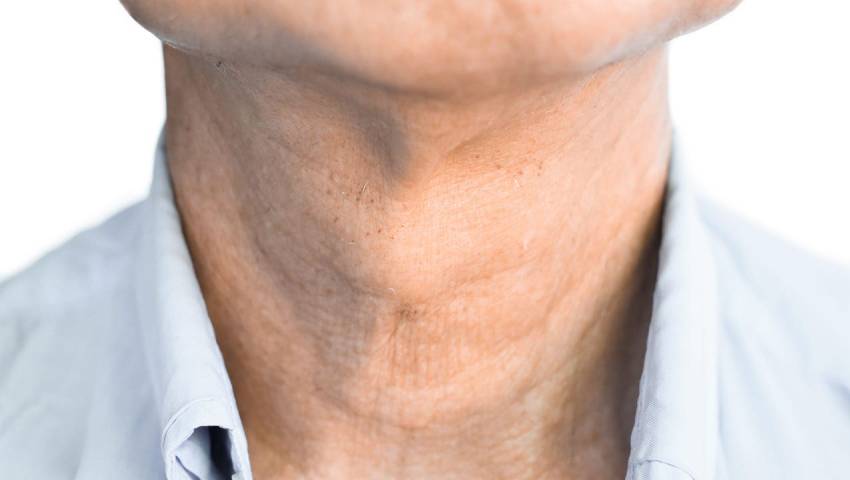
- 08/05/2024
- YASHAAYU99 Ayurveda
- Blog
Understanding Hypothyroidism: An Ayurvedic Perspective
Hypothyroidism, a condition where the thyroid gland doesn’t produce enough thyroid hormone, can disrupt various bodily functions and lead to a range of symptoms such as fatigue, weight gain, and depression. While conventional medicine offers treatments like synthetic hormone replacement therapy, Ayurveda, the ancient Indian system of medicine, provides a holistic approach to understanding and managing hypothyroidism.
In this blog post, we’ll explore hypothyroidism from an Ayurvedic perspective, including its causes, symptoms, and natural remedies.
Understanding Hypothyroidism in Ayurveda:
In Ayurveda, hypothyroidism is believed to result from an imbalance in the body’s doshas, or bio-energies – particularly Vata and Kapha doshas. According to Ayurvedic principles, the thyroid gland’s function is closely linked to the balance of these doshas. When Vata and Kapha are aggravated, they can impair thyroid function and lead to hypothyroidism.
Causes of Hypothyroidism in Ayurveda:
Ayurveda identifies several factors that can contribute to the development of hypothyroidism, including:
- Dietary Factors: Consuming an excess of cold, heavy, and damp foods, such as dairy products, sweets, and processed foods, can aggravate Kapha dosha and impair thyroid function.
- Lifestyle Choices: Sedentary lifestyle habits, irregular eating patterns, and excessive stress can disrupt the balance of Vata and Kapha doshas, affecting thyroid health.
- Environmental Factors: Exposure to cold and damp environments, as well as seasonal changes, can influence doshic imbalances and contribute to hypothyroidism.
Symptoms of Hypothyroidism in Ayurveda:
Ayurveda recognizes a range of symptoms associated with hypothyroidism, including:
- Fatigue: A feeling of constant tiredness and lethargy, often accompanied by muscle weakness.
- Weight Gain: Difficulty in losing weight, despite maintaining a healthy diet and exercise routine.
- Cold Intolerance: Sensitivity to cold temperatures, with cold hands and feet being common.
- Dry Skin and Hair: Dry, rough skin and brittle hair are typical manifestations of disrupted thyroid function.
- Constipation: Sluggish digestion and difficulty in passing stools may occur due to slowed metabolism.
Ayurvedic Remedies for Hypothyroidism:
Ayurveda offers a range of natural remedies and lifestyle modifications to help balance the doshas and support thyroid health:
- Dietary Modifications: Emphasize warm, light, and nourishing foods, such as soups, cooked vegetables, whole grains, and lean proteins. Avoid heavy, cold, and processed foods, as well as stimulants like caffeine.
- Herbal Supplements: Certain herbs and botanicals, such as Ashwagandha, Guggul, and Shilajit, are believed to support thyroid function and balance the doshas. These herbs can be consumed as supplements or incorporated into Ayurvedic formulations.
- Yoga and Meditation: Practicing yoga asanas (postures) and pranayama (breathing exercises), along with meditation, can help reduce stress levels, improve circulation, and support overall well-being.
- Daily Routine: Establishing a regular daily routine that aligns with natural circadian rhythms can help regulate the body’s internal clock and promote hormonal balance.
- Detoxification: Periodic detoxification practices, such as Panchakarma therapies, can help eliminate toxins from the body and restore doshic balance.
Conclusion:
Hypothyroidism, though a complex condition, can be effectively managed with the holistic principles of Ayurveda. By addressing underlying imbalances in the doshas through dietary modifications, herbal remedies, lifestyle adjustments, and mind-body practices, individuals can support thyroid health naturally and enhance overall vitality and well-being. However, it’s important to consult with YASHAAYU99 Ayurveda Wellbeing Center for personalized guidance and treatment recommendations tailored to individual needs.
